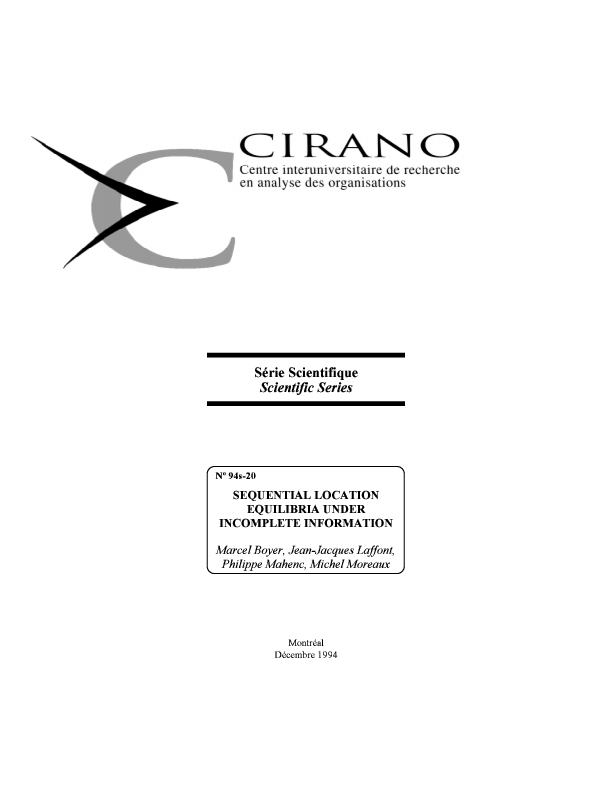Sequential Location Equilibria Under Incomplete Information
We consider a simple model of incomplete information in location theory. Two firms compete in a two stage framework: a sequential location stage and a price competition stage. Firm 1 knows both its own constant marginal cost technology and that of Firm 2, whereas the latter has incomplete information about firm 1's technology. The location stage turns out to be a monotonic signalling game and the unique D1 equilibrium is a pure strategy separating equilibrium if Firm 1's cost advantage is below some bound, and otherwise a pooling equilibrium if the prior probability that Firm 1 is of the low cost type is high, or a semi-pooling equilibrium if it is low. This surprising result is due to the fact that the location gap between the two types of Firm 1 is bounded because of natural economic reasons, which may prevent the separation of the two types. Hence, incomplete information matters: the equilibrium locations differ quite significantly from the full information equilibrium locations.
[ - ]




